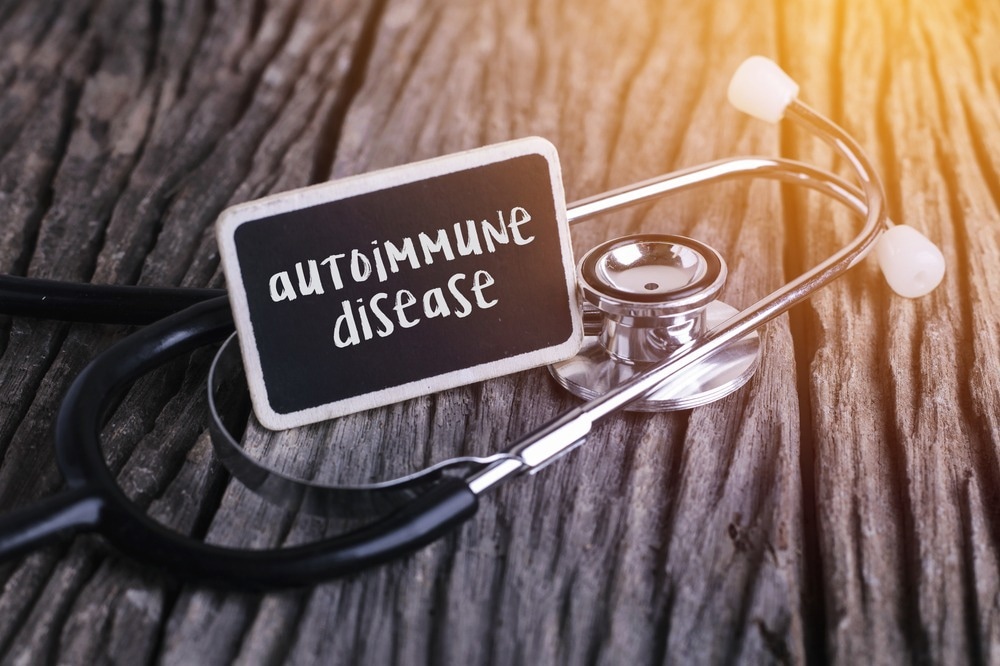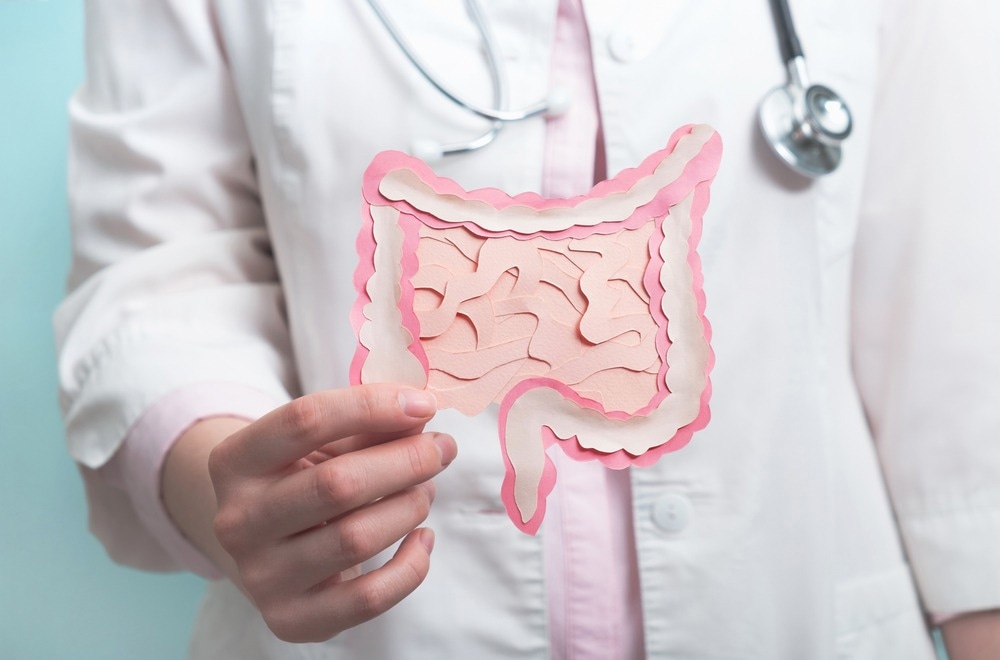The human immune system is always on full alert to distinguish harmful from harmless organisms in the body; however, it sometimes makes a mistake and attacks self-cells - this is known as autoimmunity.

Image Credit: nelzajamal/Shutterstock.com
Recently research has been abundant into the cause of autoimmune disorders. Some research into the concordance rate of autoimmune disorders such as Multiple Sclerosis (MS) in twins is as low as 30%, suggesting the rest of the 70% is environmental. Early research has shown a correlation between the biodiversity of the gut microbiome and some autoimmune disorders.
The gut microbiome and its importance
All the microbes that live in our gut are referred to as the gut microbiota. The collective genetic material of the microbiota is known as the gut microbiome. The gut microbiome is important in many aspects of human health. It aids nutrient metabolism, vitamin synthesis, metabolic reactions, and maintenance of the immune system. The developmental phase of the microbiome starts as early as three months, as breastfeeding plays a significant role in development. The highest number and diversity of microbes is lower down in the colon and mostly live in the cecum. Most of our microbiome is made up of obligate anaerobic microbes, meaning they require an anaerobic environment for fermentation and anaerobic respiration.
The importance of the gut microbiome has been shown in many parts of human health, such as brain health, gut health, heart health, control of blood glucose, and obesity. Many studies have demonstrated the differences in the microbiome of identical twins, one of whom was obese and the other healthy, the microbiome of both twins was passed on to mice with the same diets, and the mice with the microbiome of the obese twin gained weight as opposed to the healthy twin. This leads to the conclusion that the gut microbiome plays a crucial role in an individual's weight.
Autoimmune disorders and gut microbiome diversity
Previous studies have found that individuals with diets high in salt depleted beneficial bacteria such as lactobacilli. Another study showed those who increased the salt concentrations in their diet had increased blood pressure, lower levels of lactobacilli, and higher levels of inflammation. Lower levels of lactobacilli have been linked to higher levels of inflammatory cells. Inflammation is a natural defense mechanism of the body against infection; however, increased levels can cause tissue damage and autoimmunity.
Lupus
The microbial diversity in the gut of patients with SLE (system lupus erythematosus) was notably lower than healthy counterparts, whereas the number of other specific microbes was higher. This trend was also visible at different severity levels of lupus.
Rheumatoid arthritis
In patients with rheumatoid arthritis, certain species of bacteria are depleted, whereas others are enriched. Those significantly higher bacteria have been demonstrated to lead to severe arthritis and intestinal inflammation in animal models.
Inflammatory bowel disease (IBD)
Some studies have shown a link between Ruminococcus gnavus and IBD. R.gnavus is a microbe that produces inflammatory and damaging particles in high quantities
Multiple sclerosis
Research has found that many MS patients had imbalances in their gut microbiome. Certain microbes were higher in numbers, but others were lacking. Within these imbalanced species, specific genes have shown to be important in innate and adaptive immunity, suggesting the reason for the autoimmunity may lie in the gut microbiome.
Type 1 diabetes
In many type 1 diabetic patients, a "leaky gut" has been noted. A leaky gut has an increased permeability in the gut epithelial lining. Much research has shown that the leaky gut may be due to dysbiosis in the gut microbiome.

Image Credit: Helena Nechaeva/Shutterstock.com
Ways to improve the gut microbiome
Prebiotic foods
Prebiotic foods contain a particular type of fiber that is used as nutrients by good gut bacteria, which in turn promotes the growth of these good bacteria. Some prebiotic-rich foods are garlic, onions, apples, bananas, and oats.
Probiotic foods
Probiotic foods are foods that have naturally live bacteria and can restore the balance of the gut microbiome. Some foods that are Probiotic-rich include yogurt, kefir, and pickles.
Avoid taking antibiotics unnecessarily
Antibiotics are known for their ability to kill bacteria, however, they kill bacteria indiscriminately and may imbalance the gut microbiome which can lead to many problems for our health, as well as leading to antibiotic resistance.
Eating a wide variety of food
It has been shown that a diverse range of food promotes the growth of a diverse range of microbes in the gut. This is particularly useful in improving the health of the gut microbiome.
Foods rich in polyphenols
Polyphenols are micronutrients found naturally in plants, red wine, dark chocolate, and olive oil. Polyphenols are also used as nutrients by good bacteria in the gut.
With growing evidence of the importance of the gut microbiome, especially in chronic illnesses such as autoimmune diseases, finding ways to improve gut health is critical. Some of the studies on the correlation between gut health and autoimmune disorders can not be ignored and hopes to find treatments for these disorders through improving gut health are promising.
Sources:
- GUILLOU, I. (2021, February 2). Why gut bacteria are becoming key suspects in autoimmune diseases. Horizon: The EU Research & Innovation Magazine. ec.europa.eu/.../why-gut-bacteria-are-becoming-key-suspects-autoimmune-diseases
- Lamb, J. (2021, August 26). The Relationship Between Autoimmune Disease and the Gut Microbiome. Global Autoimmune Institute. https://www.autoimmuneinstitute.org/
- Robertson, R., PhD. (2017, June 27). Why the Gut Microbiome Is Crucial for Your Health. Healthline. www.healthline.com/nutrition/gut-microbiome-and-health#TOC_TITLE_HDR_9
- Xu, H., Liu, M., Cao, J., Li, X., Fan, D., Xia, Y., Lu, X., Li, J., Ju, D., & Zhao, H. (2019). The Dynamic Interplay between the Gut Microbiota and Autoimmune Diseases. Journal of immunology research, 2019, 7546047. https://doi.org/10.1155/2019/7546047
Further Reading